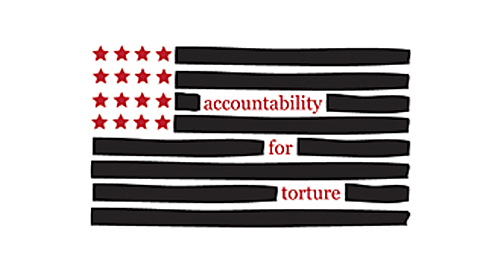
This was originally published in .
After more than a decade of denial and concealment on the part of our government, President Obama's recent acknowledgment that "we tortured some folks" felt like a milestone. Even in its spare, reductive phrasing, the president's statement opened up the possibility, finally, of national reflection, contrition and accountability.
But the president moved quickly to limit that conversation, painting those who authorized torture as "patriots" who were making difficult decisions under enormous pressure and urging the public not to feel "sanctimonious" because our military and intelligence leaders have "tough jobs."
Obama was wrong to do this, and not only because patriotism isn't a defense to criminal conduct. The deeper problem with the president's account is that it consigned to obscurity the true heroes of the story: the courageous men and women throughout the military and intelligence services who kept faith with our values, and who fought to expose and end the torture.
Missing from Obama's remarks was any recognition that the decision to endorse torture was a contested one. In fact, that decision was challenged over and over in interrogation rooms and conference rooms and at every level of government. Soldiers intervened to protect prisoners from cruelty. FBI agents refused to participate in abusive CIA and military interrogations. Military judge advocates general decried the withholding of Geneva Convention protections and rejected the arguments of civilian lawyers justifying torture. Military prosecutors at the U.S. prison in Guantanamo Bay, Cuba, resigned rather than prosecute prisoners on the basis of coerced evidence. Some CIA agents were so vocal about the abuses they saw in the field that they sparked a major agency investigation.
In every branch of the service, as well as in the intelligence agencies and diplomatic corps, men and women of conscience risked their careers to expose abuse and to confront those who authorized it. FBI interrogator Ali Soufan challenged CIA torturers at one of the agency's infamous "black sites," and later testified before Congress to debunk the CIA's claims that its cruel methods were effective. When military investigators alerted Alberto Mora, then Navy general counsel, about the abuse of prisoners at Guantanamo, Mora waged a campaign to reverse Defense Secretary Donald Rumsfeld's disastrous decision to endorse abuse by military interrogators. Guantanamo prosecutor Lt. Col. Darrel Vandeveld refused to prosecute a teenager he learned had been abused in U.S. detention in Afghanistan and Guantanamo, a decision for which Vandeveld was barred from the prosecutors' office, confined to his residence and threatened with dismissal from the Army.
Behind people like Soufan, Mora and Vandeveld were hundreds of other soldiers and intelligence officers who made no less risky decisions to stand against practices they knew were wrong.
Over the last decade, several of the architects of the torture program have written memoirs. Unsurprisingly, those who opposed the decision to authorize torture make only rare appearances in these accounts. Rumsfeld writes in his memoir, "Known and Unknown," that his licensing of brutal methods at Guantanamo in 2002 was "uncontroversial," and that his decision to reauthorize many of those techniques in spring 2003 was "unanimously supported" by a legal team. Readers of George Tenet, the former CIA director; John Rizzo, once the CIA's chief lawyer; or Jose Rodriguez, former head of the CIA's clandestine service, could be forgiven for thinking that no one ever broached the possibility of not torturing prisoners.
In telling their stories, the men who sanctioned torture cast themselves as patriots driven by their desire to protect the country. We assume they were patriots. What's inexcusable is that their accounts diminish or omit the stories of those who were equally committed to protecting the country — but who questioned their superiors and risked their careers to challenge what we now know were illegal, ineffective and immoral policies.
It is easy to understand why those who authorized torture would want to suppress the stories of those who opposed it. But neither the president nor anyone else should participate in this revisionism. To pretend that the decision to sanction torture was dictated by circumstance — that our leaders had no other choice, that anyone in their position would have done the same thing — not only excuses and justifies the terrible choice made by our political leaders but obscures the actions of the courageous men and women who stayed true to our foundational commitments even as their superiors abandoned them.
With the imminent release of the Senate Intelligence Committee's account of the CIA's interrogation program, the president will have other opportunities to tell the story of how our country came to endorse torture. As he does, he should tell the stories of the dissenters. He should honor their courage. It is time for the country to hear the history that torture's architects have sought for so long to suppress.
Learn more about torture and other civil liberties issues: Sign up for breaking news alerts, , and .

